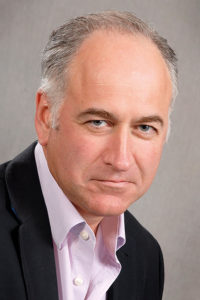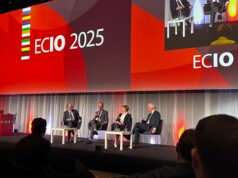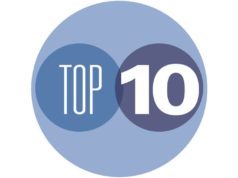
“Although [real-world registries] seem unsexy, it’s the direction of travel,” said David Breen (Southampton University Hospitals, Southampton, UK), describing the comparative advantages and challenges of randomised controlled trials (RCTs) and real-world registries in providing kidney tumour ablation data.
“Let’s talk honestly about RCTs. There are problems,” began Breen, during his talk at the European Conference on Interventional Oncology (ECIO; 12–16 April, Rotterdam, The Netherlands).
“Clearly, they set out to avoid bias and establish causality, but it’s a trade-off between experimental rigor and being able to generalise our data for its real-world applicability in daily practice.”
In general, Breen stated that RCTs are becoming “increasingly unaffordable” outside of a pharma industry setting. Conducting research in the interventional space sometimes means that professional “boundaries” will be crossed between surgery and interventional radiology (IR)— “we know that can bring problems for recruitment to randomised trials”.
The “unfortunate truth” is that some major steps in medicine have made it into standard practice without an RCT, Breen said, such as penicillin or resection for colorectal liver metastases, the latter of which exists at the level of 3b on the Evidence (EBM) Pyramid.
Returning to the kidney, Breen added that since the uptake of robotic-assisted partial nephrectomy, there has been no trial comparing the technique to open or limited-access partial nephrectomy.
Conducting RCTs evaluating ablation for kidney tumours comes with unique challenges, he went on to detail, describing renal cancer as an indolent disease process which negates the investigation of early outcome markers at one to two years. Coupled with the time and cost of setting up an RCT in this space, this often means “your new intervention is an anachronism by the time you’ve got data,” Breen stated.
So, what is real-world data? Breen asked, labelling it naturalistic data, often pulled by “digging into electronic health records [EHR]” which record a large volume of real patient data. In the UK, Breen highlighted the National Health Service (NHS) and UK Biobank, which he states are “phenomenally rich” datasets.
“There’s a reason Mark Zuckerberg and Jeff Bezos are our new best friends in the UK,” said Breen. “The NHS owns one of the largest volume and most consistent healthcare datasets exploitable in global healthcare.”
He went on to highlight the successes and failures of recent registries, highlighting ongoing efforts of the EUropean REnal Cancer CryoAblation Registry (EuRECA), established by a European Hospital network, with which Breen’s centre in Southampton is involved.
Awaiting release, Breen stated the registry team is currently sitting on prospectively collected data from approximately 1,700 patients treated with percutaneous cryoablation.
“Almost 1,500 of them are biopsy-proven, 14% in a single kidney,” said Breen. “There’s no partial nephrectomy series that is so rich with single-kidney data. The data is in preparation; it is clearly chronologically mature, this is going to be the practical direction of data accrual for healthcare providers and commissioners.”
“We’ve got to look at large real-world registries. If granular enough, we should ultimately be able to exploit artificial intelligence to try and get signals from the raw data and then go after those signals with much more targeted and hopefully easier to deliver RCTs,” Breen stated.













